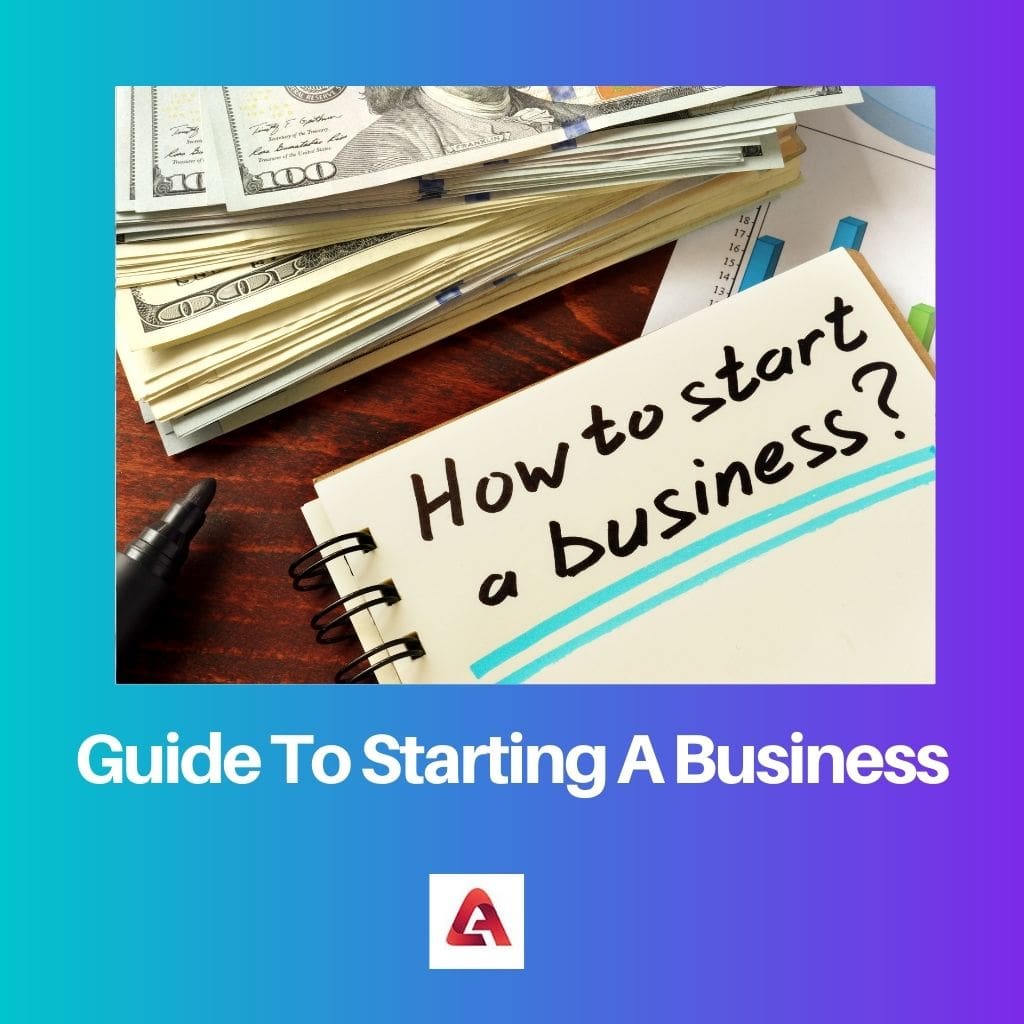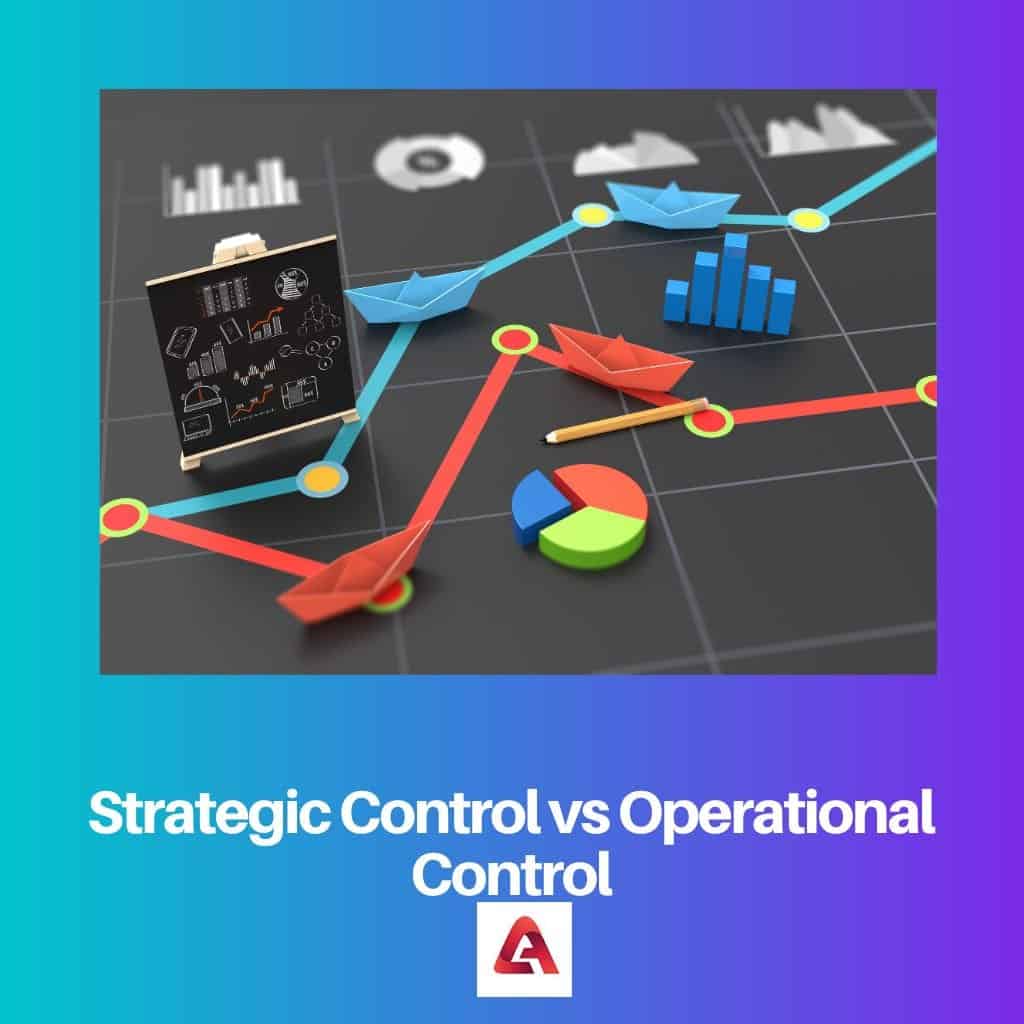Key Takeaways
- Conduct thorough market research to identify opportunities and understand competitors.
- Create a comprehensive business plan outlining the company’s vision, goals, and strategies.
- Register the business, secure necessary permits, and establish a strong financial foundation.

Introduction
Many people have a great business idea in them, even if they don’t realize it. If you’re here, you’re probably one of the people who know you have a great idea and you want to try it out.
However, bringing those ideas into reality can be difficult, especially if you’ve never done it before.

Paralysis by analysis is common, and many entrepreneurs offer platitudes, not practical, step-by-step advice on what you need to do to start a business in today’s world.
That’s why we’ve created this guide. We have many steps below that will help you by encouraging less thinking and more doing.
We’re talking business here, so you’ll be investing your time and money into your business. We don’t want to waste that, which is why we’ve referenced supporting material throughout the guide.
This doesn’t just verify some of our advice, it gives diligent readers more to discover about starting a business.
Setting Up A Business: A Step-By-Step Guide

This is going to be straightforward. Below we have split our guide into 14 steps and covered them in detail, explaining what you need to do and what you should do to find success.
You’re not here to just make a business, and you’re here to make a good business.
Our steps are ordered in a (roughly) chronological order, though you’ll likely juggle several of them at a time. Starting a business takes a lot of work, after all, so it can take some multitasking.
1. Know Yourself As An Entrepreneur Before Starting
First, you need to know yourself. Yes, we said no platitudes at the start of this guide, but knowing yourself isn’t just some mindless sentiment. It’s essential to your success.
When you’re starting a business, everything is on your shoulders. If you’re lucky, it’s just you, maybe a co-founder or two, and your business venture is small-scale and personal.
You’re not making a megacorporation; your startup business will be a reflection of yourself and anybody else involved.
Like anybody else, you have strengths, weaknesses, and skills that will inform your entrepreneurial pursuits. What can you do? What can’t you do? What do you need to learn? You should know these things before you sink too much time or money into a business.
Here are some questions you should ask yourself:
- What is your motivation for starting a business?
- Are you passionate about your business idea?
- Do you know enough about the field you want to enter?
- What kind of learner are you? Do you need to learn anything?
- How much savings do you have? Do you have resources that could go towards starting the business?
- How old are you? (Some sectors, like emerging tech, tend to be more favorable to younger people.)
Some of these matter more than others, of course. Knowing your motivations and the knowledge you need to acquire is the most important, as they’ll give you the willpower and direction you need.
Age is the least important, considering that many entrepreneurs are in their 40s when they start a business. That said, some sectors, like emerging tech, will be more favorable to younger people who have grown up with it.
You would need to put in extra effort if you’re trying to make a business doing something that didn’t even exist in your heyday. You wouldn’t expect your grandfather to start a pro-gaming team, after all.
Age also correlates with having more disposable income and resources, which can then be used to start a business more easily and effectively.
Thanks to the Internet, you no longer need piles of cash to start a business, so don’t worry if your savings are off-limits.
We can’t do step #1 for you; you should ask yourself those questions and any others relevant to your business idea and the industry it would operate in.
2. Coming Up With A Good Business Idea
Having mentioned business ideas – let’s not jump the gun here. Do you even have a business idea?
While most of you will, and it was the reason you looked up this guide, some of you may have the desire to start a business but can’t figure out what that business is.
The good news is that you must have a lot of ambition if you’re thinking of starting a business for the sake of it. The bad news is that you’re behind some of the more passionate entrepreneurs out there who simply do what they love and make money doing it.
So, let’s get a business idea. Here you should think about:
- Any hobbies that can be monetized if you’re skilled at them and organized.
- Problems that customers face/care about that you can solve.
- Services that are new or lacking in your area or targeted business sector.
- Things you can do better/cheaper than other businesses you’ve seen.
- Markets that need some innovation due to stagnation or lack of competition.
- Capitalizing on emerging or future markets as a first-mover.
- Whether you want to operate locally, globally, or online.
Maybe a few things have come to mind, in which case, write them all down. Nothing is stopping you from having more than one business idea.
In fact, the most successful entrepreneurs treat entrepreneurship itself as a job instead of being the big boss of a company. They gather ideas and then create and sell successful businesses.
Lastly, don’t force it. If you don’t get an idea that you’re happy with, you shouldn’t shackle yourself to something you don’t think will succeed, or you don’t understand.
You’ll spend time and money growing it, to varying amounts of success, and then likely abandon it when an idea that does capture your interest comes along.
3. Research The Business Idea
Now you should have a business idea if not several. You can’t start building the business yet, however, because you don’t know if it will work. It’s impossible to know everything before you take the plunge, but you can research your business ideas.
This will help you anticipate any challenges that come further along in the process while also weeding out ideas that sound good, maybe they are good, but they can’t be brought into reality yet.
Maybe you’re too early, the tech or environment required isn’t here yet, or you’re not the one who can pull it off.
What can we ask ourselves when stress-testing our business ideas?
- Is there a big enough target audience for your business idea? There’s no use in devising a brilliant product that very few people want, after all.
- Who would your customers be? We have more detail on this in the business plan section, but start thinking about your ideal customer for now.
- Is it a competitive area? This has its ups and downs. Less competition is better, but you can learn a lot from competitors, they can be your greatest foil and push you to grow and innovate your business.
- Are there any imminent threats to your business idea? You don’t want to be the person who buys a DVD rental store during the rise of Netflix, and your idea needs to have a foreseeable future that isn’t overshadowed by somebody else’s vision.
- How much will it cost? Once again, we have more finance information later in this guide, but it helps immensely to know your funding requirements early. That way, you can approach the business with them in mind and secure funding easier.
- How would marketing and sales work? Yet again, more info on this is below, but it’s almost impossible to think about your business without thinking about how you’ll get it in front of people’s eyes and deliver the service to them.
If you can answer all of those and be realistic about it, then your idea might be stable.
Don’t engage in fantasy, and certainly don’t hand-wave a lack of knowledge or lack of expertise. It’s easy to say, “I’ll have learned that by the time the business starts,” but maybe you won’t, or things will progress slower than you imagined.
You may have some time before you start establishing your business, but the best plans are the ones you could start tomorrow because you already have the skillset, the resources, and a customer base you can start working with.
4. Test Your Business Premise
You should do some preliminary testing before you commit to an idea. This is like researching your business idea, but instead, this time, it’s a trial run for the more practical, physical things you will do when operating or managing the business.
Before we get into how a business premise trial would work, you need to make sure that it’s actually useful. You need to find a metric that’s objective enough that you can measure, then use it to judge whether your business is feasible when scaled up.
Most businesses will fall into one of three metrics, and many can use a mix of them:
- Revenue generated or products sold.
- Direct interest, quantified by subscription or emailing lists.
- General interest is quantified by the press or social media attention.
As you can probably tell, starting a business nowadays will require an Internet presence sooner or later. The Internet doesn’t just make things much easier for individual business owners, but it’s also the largest marketing platform in the world.
With that in mind, how do you test a business premise?
- If you’re looking at owning a store, you can set up a market stall as a more cost-effective way to offer your products to the world. You can book a table at a market and try out face-to-face product selling, counting what you sell and how much you make, and maybe offering an email list for information or deals for when/if you get a proper storefront in the locality.
- If your business focuses on delivery or you’re not interested in a stall, you can take a telemarketing role and try to sell things over the phone. Cold calling can be brutal, but if targeting buyers properly, you can score some decent B2C and B2B interaction and gauge consumer interest.
- The most convenient and accessible for many entrepreneurs nowadays is an online storefront. You can build one with Shopify or by using plug-ins on WordPress pretty easily, establish a brand (more on that below), and do mock-ups of product pages. Add contact details and an email list, then pay for inexpensive social media ads. You can see metrics like traffic, clicks, and sales with your site if you can move products.
These 4 steps are what we’d call the pre-preparation stage, figuring out if your idea has legs. Next up is the business plan and some of the more traditional steps that you’ve probably heard before, which take steps to turn your business premise into a functioning business.
5. Create A Business Plan

Every business needs a business plan. You’ll already know if you’ve been searching the Internet for guidance on starting a business.
The problem with business plans is that they can seem complex and boring, scaring people away before they even put pen to paper, but we have outlined everything that should be a business plan below, in plain English.
The first thing you should know about a business plan is that it’s a living document. What does that mean? It means it’s supposed to be changed and amended as the situation changes.
The biggest example of a living document would be the US Constitution, for instance.
Your business plan is a snapshot of your business, so it needs to be updated. You can’t make a business plan and then still be working with old numbers and circumstances a year down the line.
Sure, it means more work for you, but it’s also vital for the plan to work.
Business plans come in eight parts:
- Executive Summary – This is a concise introduction to your business and its objectives. Keep it within two paragraphs summarizing your business and what it does.
- Contents – Often part of the same page as the executive summary, this is a contents section that tells the reader where the different sections start. This is especially important if your business plan is presented to potential investors/lenders.
- Business Description – A more in-depth rundown of the business, what you plan to do, and how you’re doing it. Keep who, what, why, where, when, and how in mind when describing anything.
Who are you within the organizational structure of the business? What goods or services are you offering? Why? Where, in the real world or online? When, including dates?
- Market Strategies – This is one of the most variable sections of a business plan. It changes depending on what you’re doing, but there are some generalities you can follow.
You should include information on the product (or service), how it’ll get promoted, how it will be priced, and how it will be distributed if required. Branding, packaging, advertising methods, PR, inventory arrangements, transport, it all goes here.
- Customer & Competition Analysis – Here is where you go into more detail about your ideal client, what they want, the solution to any problems or desires in their market, and the competitors that also want their business. List competitors and where they are better than you so you can learn from them. When online, competitor research is easier than it has ever been.
- Marketing & Sales – This section includes more detailed, practical marketing and sales planning, specifically by figuring out your sales funnel and how it works, developing your brand more, and detailing brand voice, iconography, and colors.
- Financial Analysis – This is a breakdown of your business’s current finances and financial projections. Realistically, how much do you want to earn by the end of year one? This part includes an income statement, a cash-flow statement, and a balance sheet.
- Management & Team – This is a deeper dive into the company’s organizational structure. Right now, it’s just you, maybe some co-founders, so list everybody and detail everybody’s obligations and responsibilities. As the business grows, this will need to be updated.
6. Register The Business
Now that you’re making moves to start your business, you’ll need to think about any formal and legal arrangements you need to make. The first and most important is registering your business, which is done with the relevant authorities in your area.
Where you register your business will depend on which country you are based in, though registering with a local authority is enough.
For example, most small businesses in the USA can register with their state business authorities. If registering on a federal level, it’s to receive a federal tax ID, tax exemption, or certain copyright protections for their brand and goods.
Otherwise, registering with a state tax ID is sufficient as your Employer Identification Number.
If you live elsewhere, it’s easy to find official business registers thanks to the Internet.
You’ll also need to decide what your business is. Business classification can dictate your company’s organizational structure and how it is taxed. Most businesses are sole proprietorships, partnerships, LLCs, LLPs, or C and S corporations.
7. Set Up Finances, Accounting, & Tax
Having mentioned your tax ID, let’s go deeper into your business finance, accounting, and tax arrangements.
First, you’re going to need a business bank account. Using a personal account doesn’t just come with tax concerns, and it’s also a financial management disaster waiting to happen.
Instead, make a business bank account to act as your company’s coffers and receive certain benefits from the institution you’ve signed up with. Changing to another account’s difficult and costly, so choose your baking provider wisely.
Try to choose an account that isn’t punishing for your business. For example, if you know success is going to cause a rush of transactions, don’t pick the account with the highest transaction fees.
Many banks offer support, software, and sometimes even free banking for new businesses who show interest.
All financial transactions should be recorded as a matter of law, specifically the amounts, where they went, and the date of transfer.
LLCs and corporations need to show their expenditure annually, though many businesses hire an accountant to make this easier.
8. Protect The Business
You’ll put a lot of time and effort into starting your business, so you want to protect it when it’s off the ground. You should, at the very least, get a legal advisor who can offer support to your business as it finds its legs.
If any problems arise, you should keep a legal firm around who can represent your company and its interests.
You’ll also need to work out trademarking, copyrighting, patenting, and IP rights. These are conflated, so here’s a quick explainer:
- Trademark – Legally registered and owned one word, words, or symbols that other businesses cannot use without legal challenge.
- Copyright – Work that must be used or reproduced with permission from the copyright holder.
- Patent – The rights to a production process or invention, where it has created something new or solves a technical problem. Only relevant for businesses that invent their own tech and methods.
- IP Rights – Intellectual Property is a result of creativity and can be protected under IP rights, where damages can come from people using it without permission.
You should also protect your business by seeking out insurance so you don’t get ruined by a freak, unexpected accident. Let’s say you have an equipment malfunction; you don’t want to get buried under costs, and getting small business insurance should help with that.
9. Create A Brand & Identity For The Business
One of the main reasons you need to protect your business legally is that it needs to have an identity. This is a brand and a way of operating that should be unique to your business.
By protecting it, somebody bigger can’t come along and take your best ideas and brand imagery and deal with customers as if they were your company.
Any brand you create should be professional and memorable. Try to keep to the same color scheme and use a simple but non-generic logo that instantly identifies your business once people are familiar with it.
Get an email address that is named after your business, too.
We’ve already mentioned how setting up a website may be a good idea. Not only is it a sound business decision nowadays and practically necessary to compete for a wider customer base, but it also allows you to create a hub focused on your brand and the business it conducts.
10. Purchase Business Essentials

What you’ll need to get started varies depending on what your business does. That said, there are some essentials we can help you with.
First, you’ll want to have the Internet. If you’re communicating online or trying to run a website, you’ll need a fast Internet connection that won’t lag, frustrate customers, and lose your valuable business.
Don’t settle for anything less than a 20mbs download speed or 6mbs upload speed, and make sure you check out what other customers have said about your Internet provider.
If you expect issues, make sure they actually have a customer service squad and not an automated answering machine that will lead you in circles. If the Internet isn’t strong in your area, consider investing in an antenna and a 4G connection.
While the Internet and online-hosted apps are the majority of business communication now, the phone line isn’t dead yet. There are still benefits to having a phone line, especially if you have a business-specific property.
You can also hire services that route calls from your business landline to your mobile, so you get the professionality of a dedicated phone line with the convenience of a smartphone.
Speaking of business-specific property, you’ll need to decide if it’s essential to have it. Many businesses start and find success in somebody’s living room, so they’re not essential for most small operations.
They’re also costly, so skipping out on them is a great way to cut expenses. You can always expand to a new property later if the business takes off.
11. Find Funding For The New Business
If you haven’t already noticed, some significant investments can be tied to starting your own business. To make the process easier for entrepreneurs, many sources of funding allow small businesses to get off the ground.
Naturally, they come with both advantages and disadvantages.
You have several options when it comes to funding:
- Savings – Self-funding is still an option if you have the money. You have full control, though that also means you can lose it all and fall back to square one.
- Family & Friends – Many entrepreneurs have had help from their friends. While you’ll enjoy more leniency, your relationships with them need to be airtight to introduce a lending agreement.
- Business Loans – Business loans are common in small businesses, allowing for quick funding and favorable repayment terms for those with a good credit score. There are different types of loans, some being more flexible while others stipulate that the money must be spent on things like business equipment.
There are also business credit cards, though they have high-interest rates. We’d advise you to find funding somewhere else instead.
- Grants are common in impoverished areas, where governments put up money for businesses that meet certain criteria.
- Investors – Whether they’re angel investors or venture capitalists, you can find wealthy individuals who may want to invest in your company for a percentage of ownership.
- Crowdfunding – Lastly, there’s crowdfunding. This is where you start a campaign to market the idea of your business, then anybody who sees it can give generously to see that business become a reality. Crowdfunding has worked very well for some in the past.
12. Develop Sales & Marketing Strategies

In our business plan, we mentioned sales and marketing strategies but only briefly. Without using marketing to attract people to your business, you don’t have a business.
The same goes for sales, which is how you’ll rake in some profit by the end of the business year.
So, how do you effectively market your business and make a sale? Remember to have these covered:
- Differentiation – You may have heard of differentiation before; it’s commonly referred to as the Unique Selling Point, the thing you offer that nobody else does.
- Positioning is where you figure out your product or service’s best qualities and how to communicate them properly. It’s not just about the elevator pitch, and it’s about giving it in a way that resonates with your targeted customer base.
- Pricing – This is simple, just set the price at a point where it is accessible, competitive, but also profitable at the same time.
- Assets – These are the materials you use to promote your marketing content. Whether it’s a physical brochure or an online document, they’re all assets to your marketing campaign and help generate sales.
13. Build A Team For The Business

For most businesses, scaling up will mean getting other people involved. You’re just one person, so you can’t do everything yourself.
If you have a partner or two, that will help as your business grows, but you’ll still get overwhelmed at some point if you keep expanding the business.
The first step is making sure you let the right ones in. This means you need to offer incentives that attract good employees and keep the others away.
This will include things like the possibility of career progression, competitive payment options, and a positive company culture not based on stress and negative pressure.
Careful business owners conduct three interviews minimum, though some hires are best snapped up ASAP if there’s a risk they’ll go elsewhere. The recruitment process should be clear to both you and the candidate to avoid confusion.
14. Starting The Business In Your Spare Time
As we have said multiple times throughout this guide, starting a business is a big commitment of your time and energy. When that time is already occupied with a day job or running a household, it can be difficult to establish a functional business.
Some businesses are more feasible for busy entrepreneurs, such as those that are based on the Internet. It’s also a huge advantage if you need to do business by email or messaging instead of phone calls, so you can tackle correspondence at your own pace.
You should be careful about operating in the same sector as your day job. Many contracts have non-compete clauses that restrict employees from using company secrets at their day job to enrich themselves in a side gig.
With that said, don’t advertise that you are trying to start your own business too much. Many employers may become disaffected or even resentful when they learn their employee is trying their own business.
This is because they know they’ll lose a worker if you are successful.
Keep it on a need-to-know basis. Needless to say, you should avoid working on your business on company time. You don’t want to give your employer the excuse to put pressure on your day job.
When working so hard, the best thing you can do is stay healthy, try to keep fit, and get your fill of sleep at the end of the day. Your work quality will suffer, as will your physical and mental health, if you neglect these.
Summary

With that, we’re at the end of our complete guide to starting a business!
You should now have an idea of what it takes to start your business from scratch. As you may have noticed, the Internet has revolutionized how many resources the average person has.
Nowadays, people can start businesses out of their own living rooms and find success if they have the right idea and the right marketing tactics.
Covering the fourteen tips below gives you an effective foundation for conducting your business. From there, you can start to make money by finding customers and offering them what you can.
Whether your goal is financial freedom, getting a small income, or just passing the time and seeing if it pays off, starting a business has never been easy. What are you waiting for?




